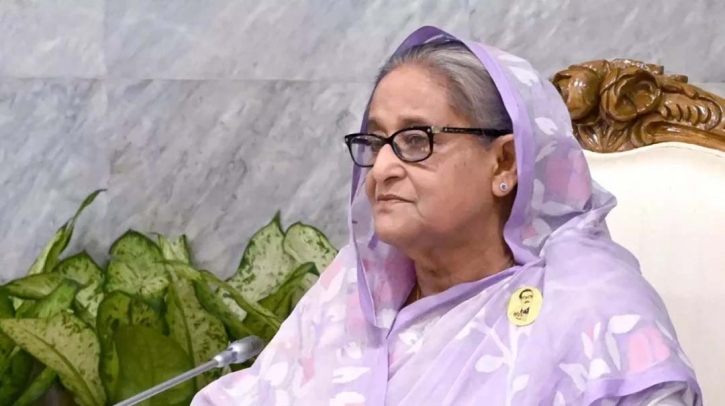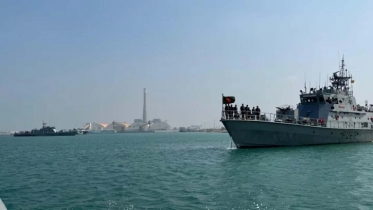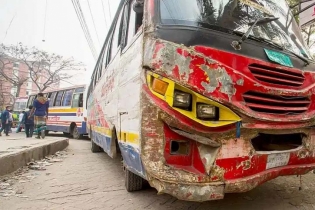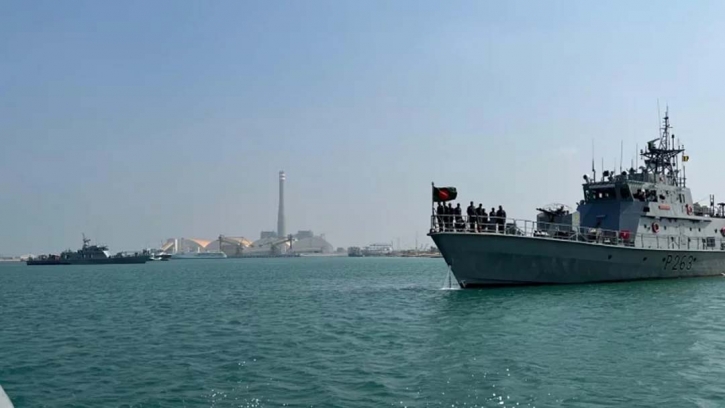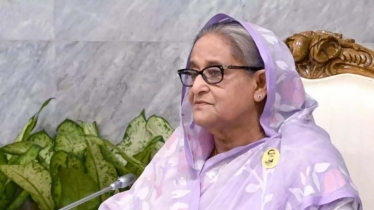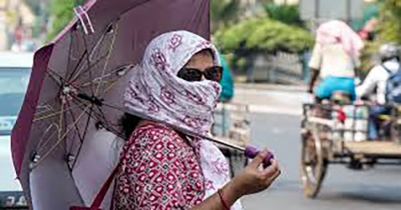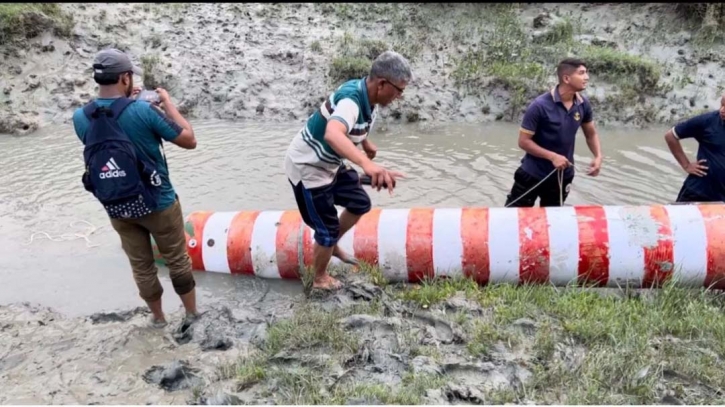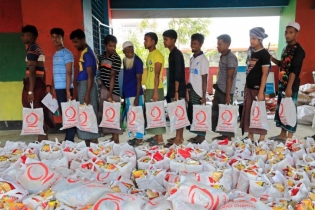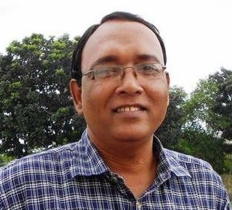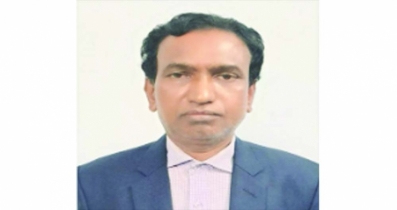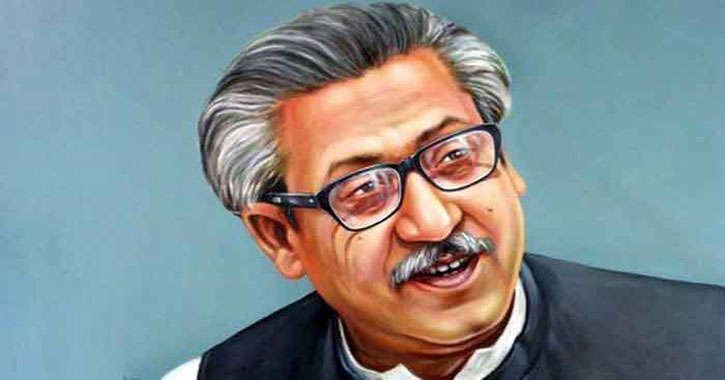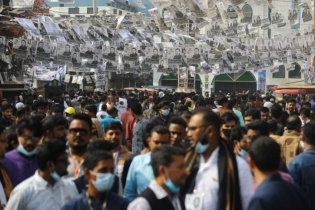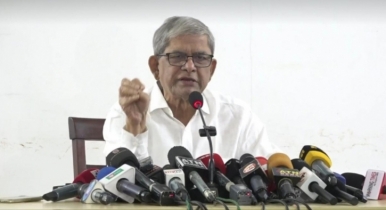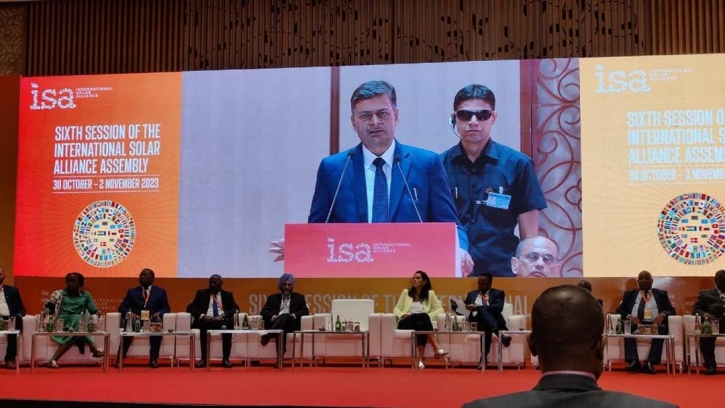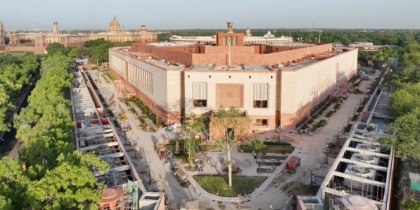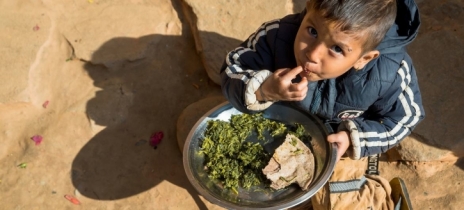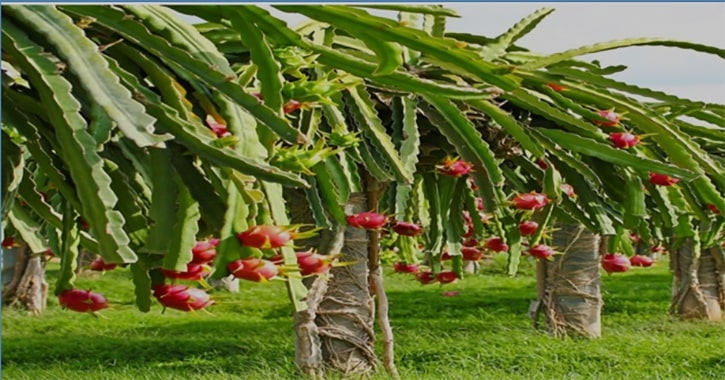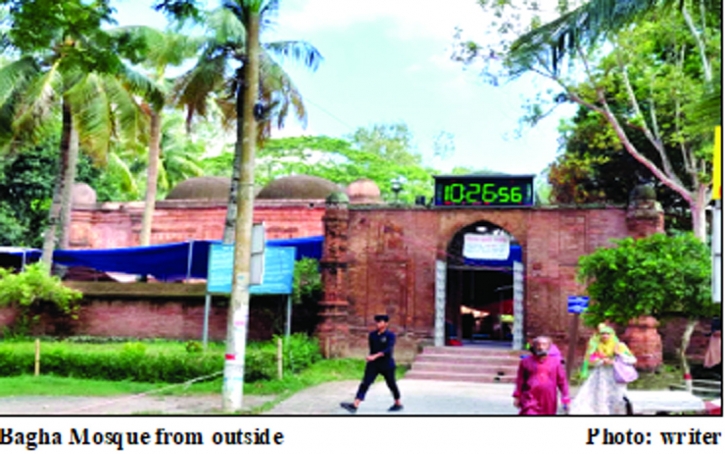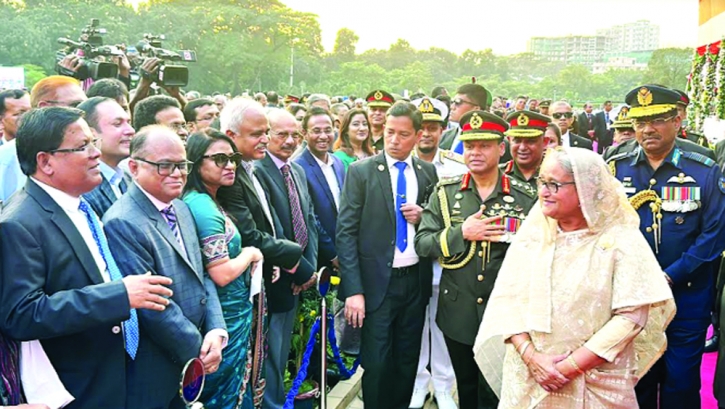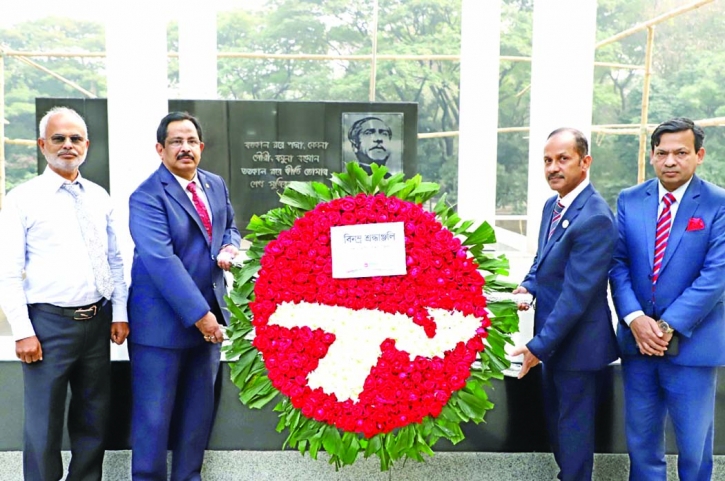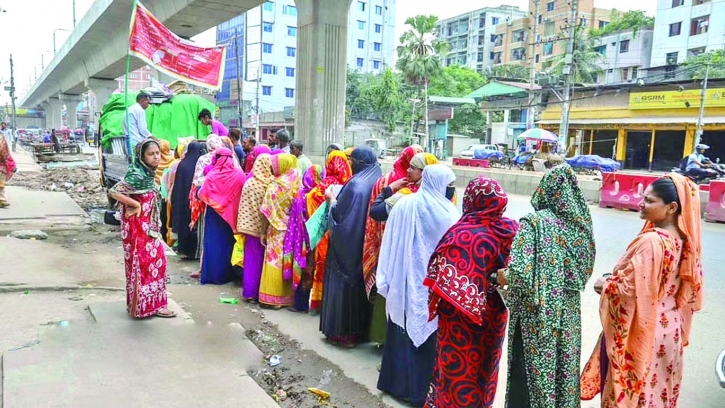Staff Correspondent
Class ten student Azmaine Inquiad Inan from Residential Model School and College has watched over a thousand animation movies to date. At the onset of Covid-19, he became increasingly addicted to watching these movies due to having ample free time alongside his studies. With digital devices readily available, he indulged in his passion for animation daily, also delving into the history and production of anime films. However, he acknowledges that his fondness for animation is not a talent.
Inan told Dhaka Tribune, "For the first time, I feel that my knowledge of animation movies can be put to use at this literature festival." He participated in the "Under-Anime Mind Quest" category of Group D, competing against students from various schools in Dhaka. The competition consisted of three stages, including a question aimed at identifying the anime character with the most acute sense of smell, a challenge only true anime aficionados could tackle.
Inan`s preference leans towards comedic action anime films, which inspired him to cultivate a habit of writing stories in the anime genre, sharing them with his parents.
Not only Inan, but nearly 600 students from grades 3 to 12, representing 30-35 schools in Dhaka, participated in the Annual Inter School Literature Festival hosted by St Joseph International School from May 2-4. The festival served as a platform for students to showcase their literary talents and creativity through a variety of engaging competitions. It celebrated literature, the arts, and the exchange of knowledge.
The three-day Lit Festival commenced at St. Joseph`s International School in the capital. The first and second days featured competitions at different levels, along with various activities and workshops.
Zubayer Chowdhury, a 7th grader, has a passion for movies. As there was no cable connection in his home until last year, his movie-watching opportunities were limited. Every Eid, he visits the cinema to watch his favorite movie, supplemented by a weekly movie session.
Zubair remarked, "I`ve watched a single movie 300 times because it`s saved in our home player. I never tire of watching it since I love movies."
The Annual Inter-school Literature Festival was a unique and thrilling event providing students with a platform to showcase their literary talents, connect with peers, and learn from industry experts. It celebrated the written and spoken word, highlighting the power of literature and the arts.
Nafiza Anjum Prova, a ninth-grade student at Summerfield International School, expressed her lifelong love for art. Amidst increasing academic pressure, she found solace in modern art, which has since become an integral part of her life. Prova participated in the festival, competing in the modern art and story writing categories.
180 students receive awards
Prizes were awarded to the winners on the last day of the festival yesterday. Guests from the Russian Cultural Center graced the closing ceremony with their presence.
Over 180 students were honoured with awards, having participated in 16 events spanning across four categories. First, second, and third place awards were bestowed upon three students from each category.
The festival comprised four groups: Group A for grades 3 and 4, Group B for grades 5 and 6, Group C for grades 7, 8, and 9, and Group D for grades 10, 11, and 12. Each group engaged in a variety of competitions designed to showcase their literary prowess in both English and Bangla.
The competitions encompassed a wide range of activities including short film production, YouTube content creation, modern art, extemporaneous speech, storytelling and writing, theatrical drama, cinematic quizzical quest, English Olympiad, masquerade, anime mind quest, spelling bee, poem recitation, poster design and presentation in English, as well as literature-based quizzes in English.
Joseph
The image shows a glimpse of St Joseph International School literary festival on Saturday, May 4, 2024. Photo: Ahadul Karim Khan/Dhaka Tribune
Festival Director Shariful Anwar said: “Through participation in the festival, students have the opportunity to develop their communication skills, critical thinking abilities, and problem-solving techniques, all while broadening their understanding of the world.”
Shegufta Islam, chief convener of the SJIS literary club, said: “This is the largest school-level literature festival in the country, where students can nurture their literary sensibilities and expand their knowledge of literature. The festival provides students with a platform to showcase their talents, interact with peers from other schools, and explore new ideas and cultures.”
She added that the festival also serves as an avenue for students to express their love for reading, writing, and the spoken word, and to share their passion for literature.
Principal Brother Chandan B Gomes expressed his belief that this event will play a significant role in enhancing students` skills and fostering the development of new ideas. Engaging in literary activities will complement the students` academic pursuits.
On March 19, 1954, Brother Jude Costello, an American Missionary member of the Congregation of Holy Cross, operating under the Catholic Archdiocese of Dhaka, founded the school as the "St. Joseph English Medium School" on Monir Hossain Lane, Narinda, in the old part of Dhaka. In July 1965, all classes were relocated from Narinda to the Mohammadpur campus.
Over the past 70 years, this educational institution has served as a launching pad for numerous academics, corporate leaders, sports personalities, politicians, scientists, engineers, architects, medical professionals, musicians, artists, debaters, quizzers, filmmakers, journalists, and policymakers of local and global renown.
The institution celebrated its Golden Jubilee on campus in 2004, and on March 19, 2024, it marked its 70th anniversary. Throughout the latter part of the 21st century, St. Joseph has continued to expand its student body and faculty size, establishing several research centers and programs.
Josephites, alumni of St Joseph, have spread worldwide, forming one of the most esteemed alumni bases in the country. Their sense of achievement finds its roots in the school.
Josephites maintain relationships with peers from other colleges by participating in inter-college competitions and college festivals. The Extra-Curricular Credits Committee (ECC) oversees students` performance and organizes contingents for events at other colleges. Extra-curricular and co-curricular activities include the Scintilla Science Club, Josephite Debating Club, Josephite Language and Reading Club, Josephite Business Club, Josephite Chess Club, Josephite Eco Earth Club, Josephite Interact Club, Josephite Cultural Forum, Josephite Wall Magazine Club, Josephite Film & Drama Club, Josephite IT Club-JITC, Josephite International Understanding Club, and the newly formed Josephite Wellbeing Club.


